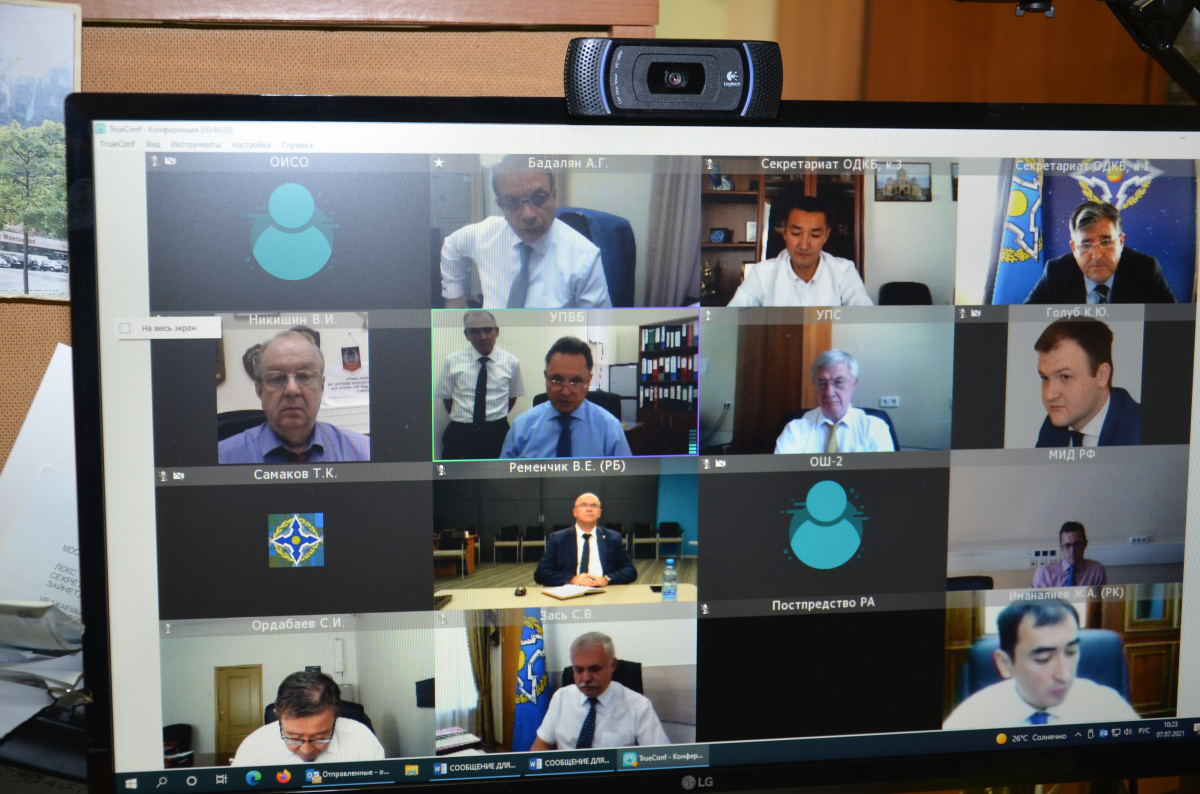A session of the Permanent Council of the Collective Security Treaty Organization (CSTO) took place yesterday in a video conferencing. CSTO Secretary General Satnislav Zas also participated in the session.
The Permanent and Plenipotentiary Representative of Tajikistan to the CSTO informed the Permanent Council members about the situation along the Tajik-Afghan border the Organization’s official website says.
He, in particular, spoke about the situation in the border areas, named the number of Afghan soldiers who crossed the border.
“Our country, guided by the principles of humanism and good neighborliness, admitted the Afghan soldiers. It is to be noted that there were four wounded and one killed among the Afghan troops,” Sultonov said.
He noted that Tajikistan as the country having the longest common border with Afghanistan was taking all necessary measures “to contain the situation and counter threats and challenges emerging from this country.”
"But given the current situation in the region, as well as the remoteness and mountainous terrain of some parts of the border with Afghanistan, dealing with this challenge on our own seems difficult," said Tajik representative at the CSTO. “These circumstances require from us an adequate response within the framework of the CSTO, including the adoption of measures to strengthen the capacity to protect the southern borders.”
In this context, the need to ensure the implementation of the decision of the Collective Security Council of September 23, 2013 on providing assistance to Tajikistan in strengthening the Tajik-Afghan border remains relevant, Sultonov said.
“Therefore, we would like to call on the member states of the Organization to contribute to the full implementation of this document,” he added,
The security situation in Afghanistan has rapidly deteriorated as foreign troops withdraw after 20 years, and hundreds of Afghan servicemen have crossed the border with Tajikistan in response to advances by the Taliban.
The CSTO Permanent Council is the body that deals with issues coordinating the interaction of Member States in the implementation of decisions taken by the organs of the Organization in the period between sessions of the Council.
The Permanent Council consists of Permanent and Plenipotentiary Representatives, appointed by the Member States in accordance with their internal procedures, and acts in accordance with the Regulations approved by the Council.
The regional security organization was initially formed in 1992 for a five-year period by the members of the CIS Collective Security Treaty (CST) — Armenia, Kazakhstan, Kyrgyzstan, Russia, Tajikistan, and Uzbekistan, which were joined by Azerbaijan, Georgia, and Belarus the following year. A 1994 treaty reaffirmed the desire of all participating states to abstain from the use or threat of force, and prevented signatories from joining any “other military alliances or other groups of states” directed against members states. The CST was then extended for another five-year term in April 1999, and was signed by the presidents of Armenia, Belarus, Kazakhstan, Kyrgyzstan, Russia, and Tajikistan. In October 2002, the group was renamed as the CSTO. Uzbekistan that suspended its membership in 1999 returned to the CSTO again in 2006 after it came under international criticism for its brutal crackdown of antigovernment demonstrations in the eastern city of Andijon in May 2005. On June 28, 2012, Uzbekistan announced that it has suspended its membership of the CSTO, saying the organization ignores Uzbekistan and does not consider its views. The CSTO is currently an observer organization at the United Nations General Assembly.




